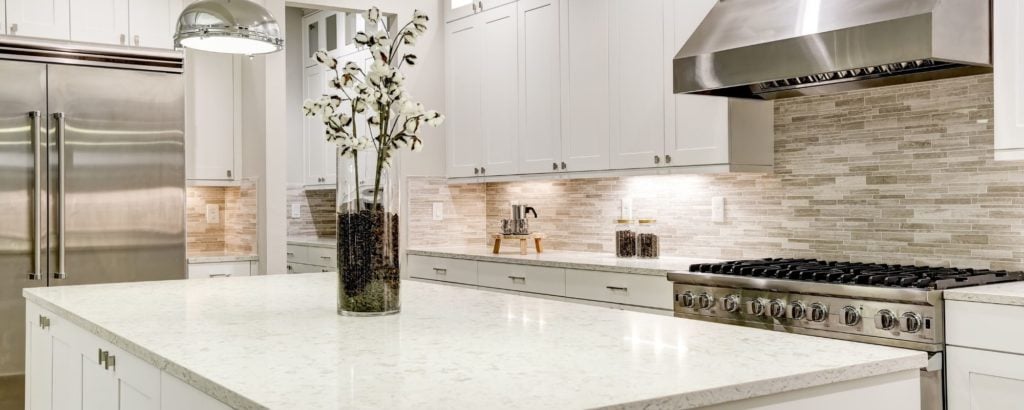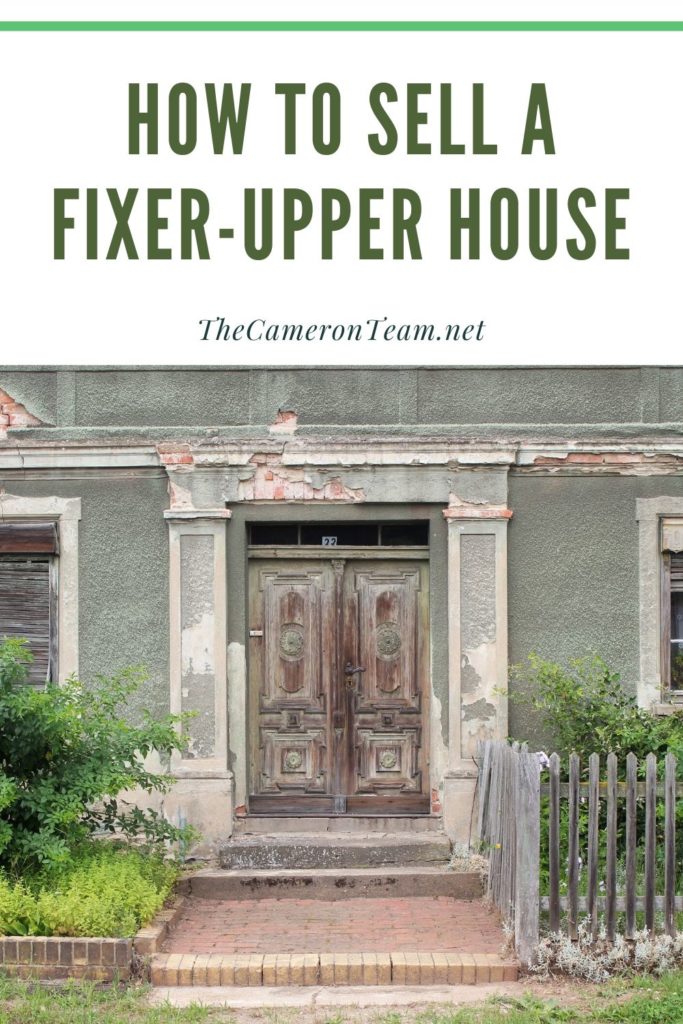When you have neither the time nor means to fix up a home, the idea of putting it on the real estate market can be stressful. Most homeowners understand that condition is one of the main factors that determine how much money a home will sell for, but that does not mean repairs or updates are a dealbreaker. You just need to adopt a marketing plan that addresses the expectations of buyers when selling a fixer-upper house.
First, Identify Your Buyer
Most home buyers want something that is move-in ready. That’s why a home not needing repairs or updates will sell for more money than one that doesn’t. Now that you know that, mentally push that fact aside.
Your goal is not to sell your home to most buyers. It is to sell it to an investor.
An investor will purchase a home, make repairs, and either sell it or rent it out. You need to understand what your property offers in order to target the right kind of investor. This will shorten the amount of days it takes to sell your property.
Investor #1: Bargain Hunter
Homes that need cosmetic updates (new flooring, cabinets, countertops, trim, etc.) are the easiest fixer-uppers to sell due to the minimal cost of investment and ease of work. These two things make them appeal to two different types of investors: bargain hunters and flippers. Bargain hunters may be looking for a home that they can live in and update at the same time, or they may be purchasing a property to rent out, which would mean they need minimal investment to make money off of the property. The more labor they’re able to do themselves, the more upgrades they’ll be able to invest in to make the property appealing.
Investor #2: House Flipper
House flippers also love homes in need of cosmetic updates, but they’re more likely than a bargain hunter to invest in major systems, like a new roof or HVAC. It all really depends on what other updated homes are selling for in the community. If your home’s systems are nearing the end of their lifespan or don’t work at all, you’ll need to consider this when setting your listing price.
Investor #3: Developer
If your home has structural issues, the value may be in the land. Wilmington is located in one of the smallest counties in North Carolina, and we have a very low percentage of available land for development, which has driven up the price of lots. This doesn’t guarantee you’ll get a huge return on a piece of land with an existing home, but it does make it possible for property to have a wider appeal, especially if it is waterfront, can be developed into a community, or has commercial opportunities. So, your target buyer may be a developer.
Estimate the Final Market Value of the Fixer-Upper
This next step can be a little tricky. You want to estimate how much your home’s value will be after updates are made. This is vital for identifying an appealing list price for investors. It also helps you to understand costs that may affect negotiations. If you overestimate the true value of the property, it may take months to sell or may not sell at all.
To find the final market value, look at homes that have recently sold in the neighborhood. The Multiple Listing System (MLS) is the best source for this information. The comparable properties will be a similar size (heated square-feet and acres) with the same number of bedrooms and baths (or close to). The structural details are least likely to change. Cosmetic finishes should be as current as possible. You don’t want to choose a home that also needs updating.
Clean Up the Home and Make Small Repairs
Even if a home is in need of updates, you should try to present it in the best light possible. Of course, you don’t want to invest a bunch of money into a fixer-upper before you sell it to someone who plans on ripping out cabinets, vanities, etc., but there are small things that you can do to improve the appeal.
Just as you would stage a home so a normal home buyer can see themselves living in it, you also want to give an investor the chance to imagine what they can do with the property. You should declutter and clean. Start packing away personal items and remove unnecessary furniture. This will not only make rooms feel bigger but will give potential investors a better view of walls, trim, outlets, and other details.
Don’t forget the exterior of the home. Throw away or store anything you’ve been keeping in the yard. Mow the grass, edge, trim bushes, weed the garden, and do what you need to make it look tidy. First impressions are important and the first thing buyers see is the front of the home. Even just patching bare spots in the grass will make a huge difference.
You should also consider making small repairs. Maybe there’s a leaky faucet or a loose door handle that needs to be replaced. When a buyer makes an offer, they’re adding up all the work they will have to do. These little repairs can manifest in the minds of a buyer at a higher amount than they may actually cost to do. Eliminating any repairs that you can will help lower that repair estimate.
Of course, this all depends on the current state of the home and how much work needs to be completed. If you aren’t sure how to prepare the home, a real estate broker or REALTOR® can provide guidance based on other properties in the community and their experiences selling homes.
Highlight the Home’s Best Features
Every property, no matter the condition, has features that will appeal to someone. These are what you should focus on when presenting the home. Not sure what will appeal to buyers? Here are some questions to consider.
Does the property have:
- Historic architectural features (like molding, special windows, built-ins, etc.)?
- Original wood flooring?
- A working fireplace?
- An open floor plan?
- A traditional floor plan?
- Lots of storage spaces or large closets?
- A large lot?
- Mature plants or trees?
- A view?
- Water access (on property or deeded in community)?
Is the property in:
- A popular neighborhood?
- A waterfront community?
- An up-and-coming/revitalized community?
- Close proximity to an area with entertainment?
- Walking distance of the ocean?
A full-service real estate broker will help you with your home’s marketing. The details mentioned above are the features that should be highlighted, so investors get a full understanding of your property’s value.
Know the Buyer’s Funding Options
Most seasoned investors purchase homes with cash. In other words, they do not need a loan. However, you may find that, despite your targeted marketing, buyers who are not investors are looking at your home. It can be beneficial to be prepared to address their concerns about the condition of the property with information about available renovation loans that roll the purchase price and money for upgrades and repairs into one loan. An example of this is the FHA 203(k) loan, which is government-backed.
Legally, you and your real estate broker should leave the subject of financing to a lender. You should not tell anyone they will qualify for lending. However, sharing that these loans exist and knowing which local banks and mortgage companies handle them, is something your real estate broker should know and be able to share.
Set a Competitive Price
Now that you’ve identified your buyer, thought about what your home has to offer, determined its potential value, and prepared the property (repairs or not), it’s time to set a list price. This is when you really have to be honest with yourself. Every homeowner has an amount they would like to get from the sale of their home, because we all have bills to pay and future events to fund. However, that amount doesn’t always align with the price that will get the property sold quickly.
Now, you may be thinking, “I don’t have to sell. I can list it and wait for someone willing to pay my price.” Well, the problem with that is you never know when or if the market will align with your expectations. Suppose you overprice the property and it sits on the market for a year. Then, your situation changes and you decide you need to sell. The property is more likely now to sell at a price lower than what you would have gotten if you priced it competitively the day you listed it.
Conclusion
Selling a fixer-upper takes some thinking outside the box and an honest look at comparable properties. If you don’t have a lot of experience selling real estate, you may not know where to find the information you need or the best steps to take to make your home appealing to investors. Having a conversation with a REALTOR® can help you identify opportunities you may not be aware of and create a plan to get your home sold.
If you’re considering selling a home in the greater Wilmington area, give us a call at (910) 202-2546. We’d love to discuss your options and the services we provide.
[the_grid name=”Home Seller Tips”]





